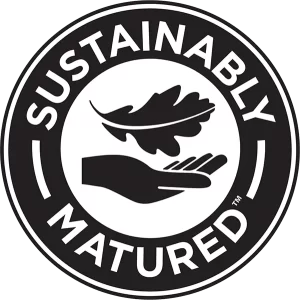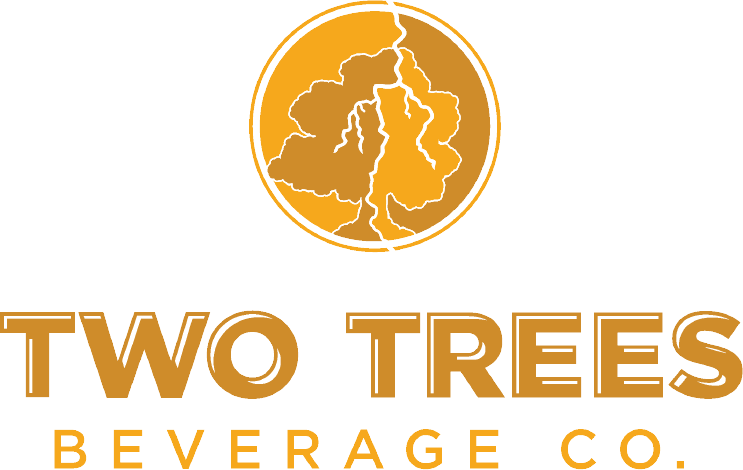
Two Trees’ “Sustainably Matured™” initiative reduces the industry’s dependency on wood and other factors that add up in calculating total GHG emissions from a product’s life cycle. We can decrease the spirits industry’s wood dependency by 90% through our sustainable maturation process that utilizes less than 10% of the wood that is required in traditional barrel-aging.
Currently the supply for oak barrels used for traditional aging of alcohol products cannot sustainably meet the demand. In fact, only one to three barrels are produced from a single tree. Generally speaking, this means that for every 200 barrels the cost is 100 trees that have aged and contributed to CO2 reduction for over 70 years. This puts a strain on our forests which absorb CO2 and help combat global warming.
Two Trees can produce the equivalent of 50 barrels or 2,650 gallons of matured spirits product with just two trees when traditional barrel-aging would require 25 trees to do the same. Additionally, these methods reduce carbon emissions by helping products reach peak maturation levels sooner, going from years to just a fraction of that with less risk, better control and no surprises.
This means when calculating the GHG emissions, the years (N) of each product stored in the warehouse is drastically reduced. In some cases, moving from a multiplier of 15 years to just a fraction of a year. Without the need for rickhouses and rackhouses, not only is the time reduced but also the percentage of space and energy in warehousing is also reduced through sustainable-maturation processes.
Aging loss (AL) is also a factor in equating total GHG emissions. In the typical barrel-aging process, ethanol is lost to evaporation (commonly referred to as the “angel’s share”). The average annual loss to evaporation for each product is applied as a loss factor contributing to the total GHG emissions of the product for every year the product sits in a warehouse. This is not only a problem for GHG emissions, but it also reduces product yield by up to 20% when the ethanol vapor evaporates, impacting profitability for the enterprise. Furthermore, angel’s share often leads to Baudoinia Compniacensis, also known as whiskey fungus. When the ethanol vapor combines with moisture in the air and falls back to earth it creates dirty, black, sticky spores that become a nuisance and eye sore. Two Trees reduces aging loss (angel’s share) in production and storage, significantly reducing carbon footprints of the brands it serves through two sustainable maturation processes.

You must be of legal drinking age to visit this site.